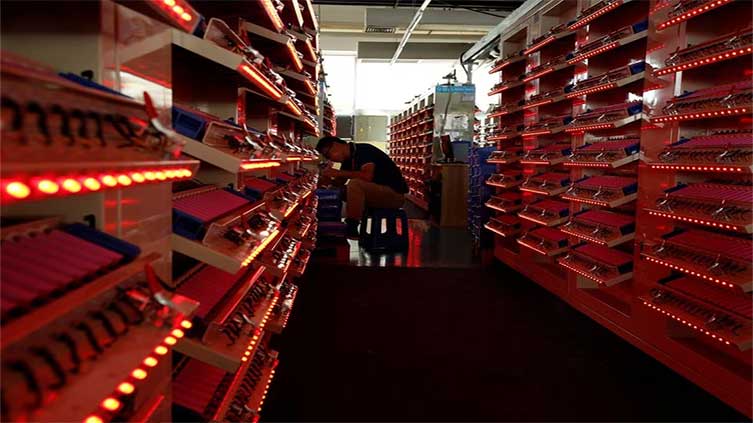Ex-minister urges Beijing to lead in setting global EV battery standards

Business
63% of the batteries installed in EVs in 2022 coming from Chinese companies
BEIJING (Reuters) - China should standardise requirements for electric vehicle (EV) batteries in order to keep its edge over other markets such as the U.S. and Europe in the rapidly growing industry, the country's former industry minister said.
"Europe and the United States are ramping up efforts to develop local battery makers, while protectionism has resurfaced," Miao Wei told the World Power Battery Conference in China's southwestern city of Yibin where he had an audience of policymakers and industry executives.
He said it was therefore urgent and important to standardise battery specifications and sizes for electric vehicles to secure China's leadership in the industry, adding there were currently 145 types of battery requirements in the country.
Miao is now deputy director of an economic affairs committee within the top political advisory body, the Chinese People's Political Consultative Conference.
China dominates EV battery supply, with 63% of the batteries installed in EVs in 2022 coming from Chinese companies, Miao said, adding the country also supplied 70% of lithium, 70% of cathode materials and 90% of anode materials used in batteries worldwide last year.
Finance leaders of the Group of Seven (G7) advanced economies discussed the need to make global supply chains more resilient by reducing over-reliance on China at a meeting in May.
The Biden administration has rolled out incentives for automakers to produce both batteries and EVs in the United States or in key trading partners like South Korea.
Miao said in light of the global consensus on the need to cut carbon emissions, it would help Chinese battery makers in world markets if they build a carbon footprint management system in line with global standards for the battery making industry.
Chinese battery giant CATL announced in April its targets to achieve carbon neutrality with all its battery making plants by 2025, and across its battery value chain by 2035.

